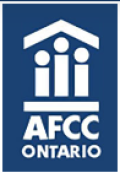Advanced Issues in Indigenous Child Welfare Law: Expanding Your Understanding of Cultural Connection and Underutilized Tools to Support Children, Youth and Families
By Brooke Thompson
loading...
-
November 24, 2025
12:00 pm - 1:00 pm
Webinar
Venue: Webinar
Presenters:
Simon Fisch – Counsel at Clarke Child & Family Law
Jaime Fortin – Articling student at Clarke Child & Family Law
Abstract:
In 2020 Canada passed the Act Respecting First Nations, Inuit and Metis Children Youth and Families, often referred to as the “Federal Act”. In so doing, Canada has explicitly attempted to address the significant and long-standing harms and discrimination which has been perpetrated against Indigenous children and families.
The Federal Act and CYFSA are remedial legislation aimed at ending the historic discrimination and unilateral approaches of Canada that led to disparate and negative outcomes for Indigenous people in child protection proceedings. The Quebe Court of Appeal and the Supreme Court of Canada, in analysing the constitutionality of the Federal Act, have examined the context and legislative intent leading to the enactment of the Federal Act at length. The Court has described how Canada’s assimilative and colonial policies, laws, and practices have contributed to the dramatic overrepresentation of Indigenous children in child welfare systems in Canada.
The Court have also explained that the various Commissions (i.e. Royal Commission on Aboriginal Peoples, the Truth and Reconciliation Commission (“TRC”), the Viens Commission and the National Inquiry into Missing and Murdered Indigenous Women and Girls), the Human Rights Tribunal decisions and under-funding of Indigenous child welfare, the UNDRIP, and the many law suits and settlements which all led to the collaborative work in developing the Federal Act give the context for defining its purpose: to remedy the harm the state has brought upon Indigenous children, families and Nations, and require decision making regarding the placement and care of Indigenous children to be done in accordance with principles of substantive equality in order to mitigate this harm, including placements of a child outside their immediate family being used only as a last resort.
Simply put, the Federal Act, the CYFSA and numerous court decisions have stressed the obligation by child welfare agencies, courts, lawyers, practitioners and service providers to revisit the concept of “harm” in a child protection proceeding and utilize all of the tools available to achieve better outcomes for children, youth and families.
Simon and Jamie will discuss the expansion of the analysis of harm in a child welfare context, including the Court’s consideration of the loss of culture and connection to community as harm.
As well, through an examination of Customary Care Agreements, from both the legal and ‘on-the-ground’ community perspective, Jamie and Simon will highlight some of the underutilized tools that are available to child welfare practitioners to support children and families.
Deadline to register: November 23
Meeting link and materials will be sent a day prior to the event.

Contact Us
C/O Tara Bakhtiari,
Administrator
AFCC-O
7145 West Credit Avenue
Building 2, Suite 201
Mississauga, ON L5N 6J7
Email us at: info@afccontario.ca
Copyright 2009-2024 AFCC - Ontario Chapter. All Rights Reserved. Site by Creative Alternatives
